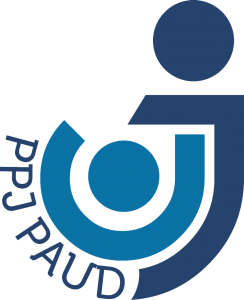Penanaman Nilai Kewirausahaan bagi Anak Usia Dini melalui Pembelajaran Ekonomi Kreatif
Planting Entrepreneurial Values for Early Childhood through Creative Economy Learning
DOI:
https://doi.org/10.37680/absorbent_mind.v2i02.1722Keywords:
Anak Usia Dini, Ekonomi Kreatif, Nilai Kewirausahaan, PenanamanAbstract
Penelitian ini mempunyai tujuan untuk menganalisis cara menenamkan nilai kewirausahaan bagi anak usia dini melalui pembelajaran ekonomi kreatif. Metode penelitian yang digunakan yaitu dengan pendekatan analisis kualitatif melalui proses ciritical review terhadap menguatnya prinsip penanaman nilai kewirausahaan sejak usia dini melalui pembelajaran ekonomi kreatif. Saat ini Keberadaan ekonomi kreatif ditandai dengan bertumbuhnya lembaga-lembaga keuangan Syari’ah, seperti Perbankan Syari’ah, dan Industri Keuangan Syari’ah NonBank (IKNB). Berkembangnya ekonomi Syari’ah sebagai suatu preferensi prilaku ekonomi masyarakat muslim di Indonesia menunjukkan bahwa adanya prinsip penanaman sejak usia dini, memberi motivasi, persepsi dan kepercayaan atas hal tersebut. Hasil penelitian didapatkan bahwa melalui pembelajaran ekonomi kreatif bagi anak usia dini membuat prinsip dasar yang mengajarkan anak tentang nilai-nilai kewirausahaan. Selain itu anak-anak dilatih kemandirian bidang ekonomi agar nantinya bisa tumbuh dan berkembang menjadi pribadi entreprenuership.
This study aims to analyze how to instill entrepreneurial values in early childhood through creative economic learning. The research method used is a qualitative analysis approach through a qualitative review process on strengthening the principle of instilling entrepreneurial values from an early age through learning the creative economy. Currently, the existence of the creative economy is marked by the growth of Islamic financial institutions, such as Islamic Banking, and the Non-Bank Islamic Financial Industry (IKNB). The development of the Sharia economy as a preference for the economic behavior of Muslim communities in Indonesia shows that there is a principle of inculcation from an early age, providing motivation, perception, and belief in this matter. The results of the study found that through creative economic learning for early childhood, basic principles are created that teach children about entrepreneurial values. In addition, children are trained to be independent in the economic field so that later they can grow and develop into entrepreneurship.
References
Arafah, M. (2019). Sistem Keuangan Islam: Sebuah Telaah Teoritis. Al-Kharaj: Journal of Islamic Economic and Business, 1(1), 56–66. https://doi.org/10.24256/kharaj.v1i1.801
Batubara, Z. (1998). Ekonomi Syari’ah sebagai fondasi ekonomi kerakyatan untuk mencapai indonesia yang sejahtera. 1–11.
El Ayyubi, S., Anggraeni, L., & Mahiswari, A. D. (2018). Pengaruh Bank Syari’ah terhadap
Pertumbuhan Ekonomi di Indonesia. Al-Muzara’ah, 5(2), 88–106. https://doi.org/10.29244/jam.5.2.88-106
Fadzlan, M. Z., Garamatan, R., & Ayuniyyah, Q. (2021). PENTINGNYA DAN KEWAJIBAN EKONOMI SYARI’AH. 01(1), 44–63.
Fikriyah, K., & Alam, W. Y. (2021). Perkembangan Keuangan Syari’ah dalam Realitas Politik di Indonesia. 7(03), 1594–1601.
Hutagalung, M. W. R., & Batubara, S. (2021). Peran Koperasi Syari’ah Dalam Meningkatkan Perekonomian dan Kesejahteraan Masyarakat di Indonesia. 7(03), 1494–1498.
Iskandar, A., & Aqbar, K. (2019). Reposisi Praktik Ekonomi Islam: Studi Kritis Praktik Ekonomi Islam di Indonesia Khaerul Aqbar. October. https://doi.org/10.36701/nukhbah.v5i1.68
Islam, U., Uin, N., & Semarang, W. (2014). PENGEMBANGAN EKONOMI ISLAM BERBASIS KEPENDUDUKAN DI PERDESAAN Thohir Yuli Kusmanto Pakar ekonomi memperkirakan ekonomi Islam di Indonesia akan mengalami perkembangan pesat 15 tahun ke depan dan akan menjadi. 34(2), 219–235.
Kasus, S., Mandiri, S., Cabang, B. S. M., Daerah, P., Diy, B. P. D., Ekonomi, D., Stia, S., & Ata, A. (2012). Analisis persepsi dan preferensi nasabah muslim dan nasabah non muslim terhadap keputusan memilih perbankan Syari’ah di provinsi diy. II(2).
Keuangan, J. L., Islam, B., Terhadap, M., & Syari’ah, P. (2021). Asy-Syarikah Asy-Syarikah. 3(2), 140–146.
Kolistiawan, B. (2017). Tantangan Lembaga Keuangan Syari’ah dalam Mengahadapi Masyarakat Ekonomi ASEAN. 8(1), 54–64.
Masykuroh, E. (2017). Penduduk Muslim Sebagai Potensi Pasar Perbankan Syari’ah. Journal of Islamic Economics, Finance, and Banking, 11(1), 131–155.
Nursyamsiyah, I., & Nopianti, N. (2021). Jurnal ekonomi rabbani. November, 52–62.
Romdlan, A., & Toha, M. (2021). Investasi : Jurnal Ekonomi dan Bisnis Persepsi Masyarakat Desa Kapedi Sumenep tentang Perbankan Syari’ah. 1(2), 65–71.
Sodiq, A. (2018). Analisis Swot Perkembangan Perbankan Syari’ahdi Indonesia. MALIA: Journal of
Islamic Banking and Finance, 1(1), 15–28. https://doi.org/10.21043/malia.v1i1.3981
Stai, M., Moh, S., Bangkalan, C., Moh, S., Demangan, C., & Kec, B. (2021). No Title. 03(01), 20–32.
Vebitia, & Bustaman. (2017). Analisis Preferensi Masyarakat Terhadap Prinsip Bagi Hasil Pada Bank Syari’ah Di Wilayah Banda Aceh. Jurnal Ilmiah
Downloads
Published
Issue
Section
License
Absorbent_mind; Journal of Psychology and Child Development allow the author(s) to hold the copyright without restrictions and allow the author(s) to retain publishing rights without restrictions, also the owner of the commercial rights to the article is the author.
License:
- Attribution: You must provide an appropriate name, include a link to the license, and certify that changes have been made. You can do this in an appropriate manner, but do not imply that the licensor supports you or your use.
- Share Alike: If you compose or make derivatives of these materials, you must distribute your contributions under the same license as the original materials.
- No additional restrictions: You may not use legal provisions or technological means of control that legally restrict others from doing the things this license allows.
You are free to:
- Share, copy, and redistribute this material in any form or format.
- Adapt, modify, and create derivatives of this material for any purpose, including commercial purposes.
- The licensor cannot revoke the above terms as long as you comply with the terms of this license.
Creative Commons Attribution-ShareAlike 4.0 International License (CC BY-SA 4.0).






